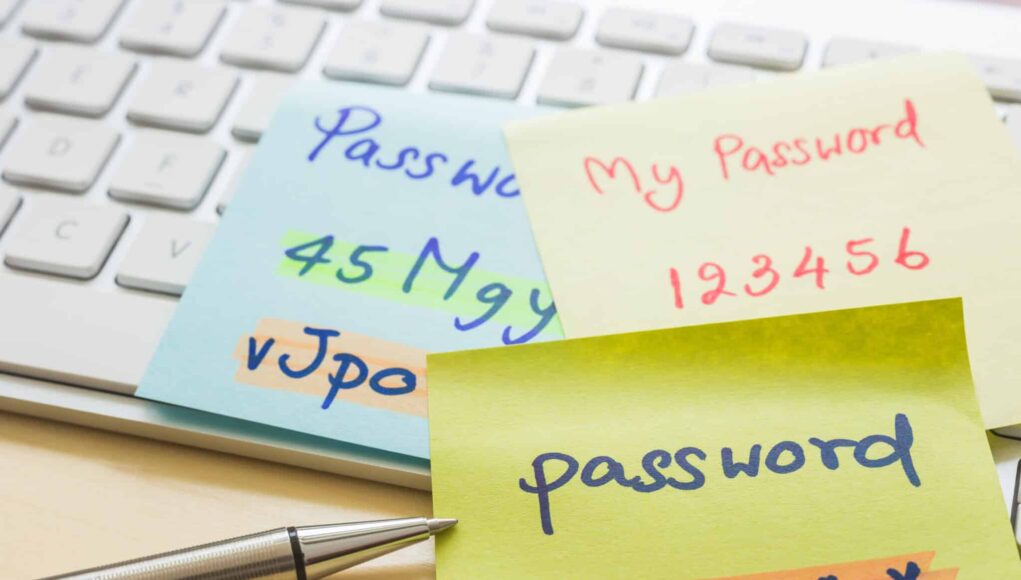Essential Guide to 5 Powerful Password Management Tools
Related Articles: Essential Guide to 5 Powerful Password Management Tools
- Effortless 5-Step Guide To Building Your Ultimate Gaming PC
- Ultimate Guide: 7 Powerful Steps To Secure Your Digital Fortress
- Amazing Battery Life! 7 Power Tips For Smartphone Optimization
- Conquer 5 Crucial Cloud Storage Challenges For Ultimate Efficiency
- Conquer Your Day: 5 Powerful Ways To Master Digital Assistants
Introduction
With great pleasure, we will explore the intriguing topic related to Essential Guide to 5 Powerful Password Management Tools. Let’s weave interesting information and offer fresh perspectives to the readers.
Table of Content
Essential Guide to 5 Powerful Password Management Tools

The digital age presents a daunting challenge: remembering countless passwords for various online accounts. From banking to social media, email to streaming services, the sheer volume of passwords required for modern life is overwhelming. Attempting to manage this complex web of login credentials solely through memory is not only impractical but also incredibly risky. A single weak or reused password can compromise your entire digital life, exposing sensitive personal information and financial accounts to malicious actors. This is where password management tools become indispensable. These powerful applications offer a secure and efficient solution to the password problem, providing a single point of access to all your online accounts while significantly enhancing your overall cybersecurity posture.
This guide explores five powerful password management tools, examining their features, strengths, weaknesses, and suitability for different users. We’ll delve into the critical aspects of choosing the right tool, ensuring that you select the one best suited to your specific needs and technical proficiency. Ultimately, the goal is to equip you with the knowledge necessary to make informed decisions and significantly improve your online security.
Understanding the Importance of Password Managers
Before diving into specific tools, let’s reiterate the critical importance of using a password manager. These applications offer several key benefits:
-
Strong Password Generation: Password managers generate incredibly strong, complex passwords that are virtually impossible to crack using brute-force attacks. These passwords typically incorporate a mix of uppercase and lowercase letters, numbers, and symbols, far exceeding the capabilities of human memory.
-
Secure Storage: Your passwords are encrypted and stored securely within the password manager’s vault. Even if the password manager itself is compromised, the encryption protects your actual passwords from being accessed. Reputable password managers utilize robust encryption algorithms, making unauthorized access extremely difficult.
-
Centralized Management: Instead of juggling multiple passwords across various devices and browsers, a password manager provides a single, secure location to manage all your login credentials. This simplifies access and reduces the risk of human error, such as reusing passwords or forgetting them entirely.
-
Cross-Platform Compatibility: Most reputable password managers offer applications for multiple operating systems (Windows, macOS, iOS, Android) and browser extensions, ensuring seamless access to your passwords across all your devices.
-
Autofill Functionality: This feature automatically fills in your usernames and passwords when you log in to websites, saving you time and effort. It also helps prevent typos, a common cause of login failures.
-
Multi-Factor Authentication (MFA) Support: Many password managers integrate with MFA, adding an extra layer of security to your accounts. This typically involves a secondary verification method, such as a one-time code sent to your phone or email.
-
Emergency Access: In case of unexpected events, such as illness or death, reputable password managers offer features that allow designated individuals access to your stored passwords.


Review of Five Powerful Password Management Tools
Now, let’s delve into the specifics of five popular password management tools:
1. 1Password: 1Password is a highly regarded and widely used password manager known for its user-friendly interface and robust security features. It offers strong password generation, secure storage, cross-platform compatibility, and excellent autofill functionality. It also boasts advanced features like secure note storage, family sharing options, and emergency access capabilities. 1Password employs end-to-end encryption, meaning that only you have access to your decrypted passwords. The company has a strong reputation for security and transparency. However, it’s a subscription-based service, which might be a deterrent for some users.
2. LastPass: LastPass is another popular and long-standing password manager offering a free plan with limited features and a premium plan for more extensive functionality. Similar to 1Password, it provides strong password generation, secure storage, cross-platform compatibility, and autofill capabilities. LastPass also offers features such as secure note storage, emergency access, and multi-factor authentication. While generally considered secure, LastPass has experienced security breaches in the past, highlighting the importance of keeping software updated and using strong master passwords.
3. Bitwarden: Bitwarden stands out as a strong open-source option, meaning its source code is publicly available for review and scrutiny. This transparency offers a higher level of assurance regarding its security. Bitwarden provides many of the same features as 1Password and LastPass, including strong password generation, secure storage, cross-platform compatibility, and autofill. It also offers a free plan and a premium plan with additional features. The open-source nature makes it attractive to users who prioritize transparency and community involvement.
4. Dashlane: Dashlane is a feature-rich password manager that goes beyond simple password storage. It includes features such as identity theft monitoring, VPN capabilities, and a dark web monitoring service. These added features enhance its overall security and privacy protection. Dashlane offers strong password generation, secure storage, cross-platform compatibility, and autofill. However, its pricing is typically higher than some competitors, reflecting the inclusion of these extra features.
5. Keeper: Keeper is a password manager that emphasizes enterprise-grade security. It’s frequently chosen by businesses and organizations that require robust security measures. Keeper offers strong password generation, secure storage, cross-platform compatibility, and autofill. It also includes advanced features such as file encryption, secure messaging, and compliance with various security standards. Its focus on enterprise security translates to a more robust and potentially more complex user experience compared to some consumer-focused options.
Choosing the Right Password Manager for You
Selecting the best password manager depends on your individual needs and preferences. Consider the following factors:
-
Budget: Some password managers offer free plans with limited features, while others are subscription-based with varying price points.
-
Features: Determine which features are essential to you. Do you need secure note storage? Family sharing? Emergency access? Identity theft monitoring?
-
Ease of Use: Choose a password manager with an intuitive interface and user-friendly features.
-
Security: Prioritize password managers with a strong track record of security and transparency. Look for features like end-to-end encryption and multi-factor authentication.
-
Platform Compatibility: Ensure that the password manager is compatible with all your devices and browsers.
-
Open Source vs. Proprietary: Open-source password managers offer transparency, allowing independent security audits. Proprietary solutions rely on the vendor’s security claims.
Beyond Password Managers: Best Practices for Online Security
While password managers are a crucial element of online security, they’re not a silver bullet. It’s vital to combine their use with other best practices:
-
Strong Master Password: Choose a long, complex, and unique master password for your password manager. This is the single point of access to all your other passwords, so its security is paramount. Consider using a password manager to generate and manage this master password as well.
-
Enable Multi-Factor Authentication (MFA): Always enable MFA whenever possible for all your online accounts. This adds an extra layer of security, making it significantly harder for attackers to gain access even if they obtain your password.
-
Regular Software Updates: Keep your password manager and all your other software updated to the latest versions. Updates often include security patches that address vulnerabilities.
-
Beware of Phishing: Be cautious of suspicious emails, websites, and messages that attempt to trick you into revealing your passwords or other personal information.
-
Use Different Passwords for Different Accounts: Even with a password manager, avoid reusing passwords across multiple accounts. If one account is compromised, the attacker won’t gain access to all your other accounts.
-
Regularly Review Your Passwords: Periodically review your stored passwords and update any that are outdated or weak.
By utilizing a robust password manager and following these security best practices, you can significantly enhance your online security and protect yourself from the ever-present threat of cyberattacks. Choosing the right tool and employing responsible online habits are crucial steps in safeguarding your digital life. Don’t underestimate the importance of securing your online accounts; your digital well-being depends on it.
Closure
Thus, we hope this article has provided valuable insights into Essential Guide to 5 Powerful Password Management Tools. We hope you find this article informative and beneficial. See you in our next article!
google.com








